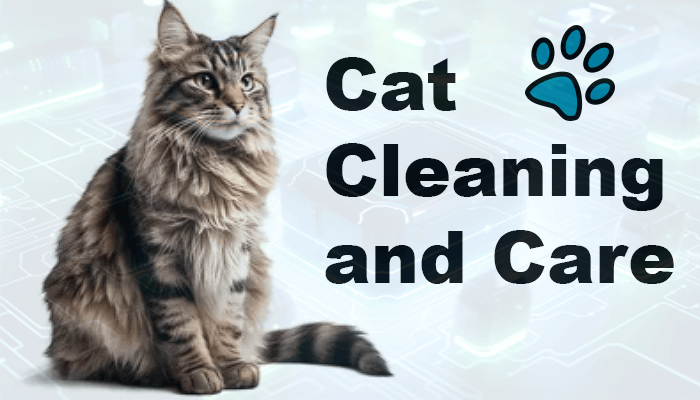Cat Cleaning and Care

Hello, dear readers. Cat Cleaning and Care Today we have started to present the care, cleaning and behaviour measures of the little friends prepared for you. You will see that it is different from many articles described.
Let’s look and learn together.
Cats are generally pretty good at grooming themselves, but there are still things you can do to help keep them healthy and clean. Here are some tips for cat cleaning and care:
- Regular Brushing: Brushing your cat’s fur helps to remove loose hair, prevent matting, and reduce shedding. It’s especially important for long-haired cats. Aim for brushing your cat a few times a week, or daily if your cat has long hair.
- Bathing: Most cats don’t require regular baths since they groom themselves. However, if your cat gets into something sticky or dirty, you may need to give them a bath. Use a cat-specific shampoo and be sure to rinse thoroughly.
- Ear Cleaning: Check your cat’s ears regularly for dirt, wax buildup, or signs of infection. Use a damp cotton ball or pad to gently wipe the outer part of the ear. Avoid inserting anything into the ear canal.
- Nail Trimming: Keep your cat’s nails trimmed to prevent them from becoming too long and causing discomfort or getting caught in things. Use cat nail clippers and be careful not to cut the quick (the pink part inside the nail that contains blood vessels and nerves).
- Dental Care: Dental health is important for cats too. Consider brushing your cat’s teeth regularly using a cat-specific toothbrush and toothpaste. Dental treats or toys designed to promote dental health can also be beneficial.
- Eye Cleaning: Check your cat’s eyes regularly for any signs of discharge or irritation. Use a damp cloth or cotton ball to gently wipe away any debris from around the eyes. If you notice any persistent issues, consult your veterinarian.
- Regular Vet Check-ups: Schedule regular check-ups with your veterinarian to ensure your cat’s overall health and well-being. Your vet can provide guidance on any specific grooming or care needs your cat may have.
- Healthy Diet: Providing your cat with a balanced and nutritious diet is essential for their overall health, including the health of their skin and coat.
- Flea and Parasite Control: Keep your cat protected from fleas, ticks, and other parasites by using preventative medications recommended by your veterinarian.
By incorporating these practices into your cat’s routine, you can help keep them clean, healthy, and happy. If you have any specific concerns about your cat’s grooming or care, don’t hesitate to consult with your veterinarian for advice.



